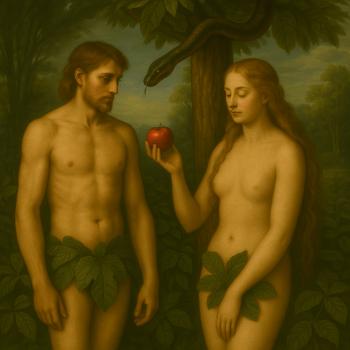There are many paths to the top of the mountain and many ways of looking at things. All religion is cultural. All theology is speculation.
Often, desert cultures are monotheistic; forest cultures are polytheistic; hunting cultures are patriarchal and shamanic; farming cultures are matriarchal and communal.
Patriarchal cultures worship male deities, and matriarchal cultures worship female deities. Some anthropologists believe that we create God in our image, not vice versa.

Many Christians believe that God is omnipotent, omnipresent, and omniscient. Perhaps God knows our pasts (but not our futures) or our actions (but not our thoughts).
Perhaps God changes; perhaps God co-creates with us, as process theologians say; perhaps God is all-knowing (but not all-powerful) as the relational theologians say.
When we encounter a reality that conflicts with our theology, do we conform our “reality” to match our theology, or do we conform our theology to match our reality?
Western Worldview
Greek and Roman philosophy and Judeo-Christian theology color the Western worldview. Our culture is suffused with philosophy and theology, even if we are not philosophers or theologians ourselves:
- The universe was created ex nihilo, out of nothing.
- There was a cosmic rift between God and man, caused by original sin.
- God is personal, and he is omnipotent, omnipresent, and omniscient.
- Time is linear, not cyclical, and there is a beginning and an ending.
- The Universe is orderly and purposeful; life has intrinsic meaning.
- Morality is absolute, and actions are either right or wrong.
- We have individual souls, and we may live beyond our physical lives.
- We have free will, and we may influence our lives and our afterlives.
A personal God is a being who can enjoy a relationship, like a person. Although many people in many places and many times believe in a higher presence, the belief that God is a person (or three persons) is more common in the Western worldview.
Eastern Worldview
Chinese and Indian philosophy color the Eastern worldview. It is difficult to generalize, because Eastern religions are not creedal and because Eastern religions do not agree, but there are some assumptions that are more common in the Eastern worldview:
- The Universe is eternal, and it collapses and expands into and out of space/time.
- God is in everyone and everything, so a cosmic rift is not possible.
- God is impersonal, a force or presence (that one can imagine as a person.)
- Time is cyclical, not linear, and there is no beginning or ending.
- The Universe is certainly orderly, possibly purposeful, and we find our meaning.
- Morality is necessarily relative, and right and wrong are functions of perspective.
- We share a universal consciousness, and we return to this source when we die.
- We do not have free will, since we are impacted by chance, nature, and nurture.
We take comfort that our tradition makes sense, given our assumptions. Given different assumptions, it makes less sense to others. In the Eastern worldview, where one does not believe in a personal God, original sin, the need for atonement, or a heaven or hell, then some fundamental Christian doctrines make less sense.
For example, many philosophers and scientists do not believe that we have free will. If this is true, then there would be no need for judgment, no basis for extending justice, no point to punishment or reward, and no distinction between saints and sinners.
Given different conditioning, cultures, and kinfolk, each of us might adopt different assumptions, based on different worldviews, which might suggest different theologies.
Does this mean that “anything goes”? No, it means that our individual perspectives are clannish, conditioned, and cultural, so that our individual “truths” might actually reveal the real Truth (or they might actually conceal or obscure the real Truth.) All religion is cultural. All theology is speculation.
If you want to stay up to date on the latest from You Might Be Right, simply subscribe with your email.














